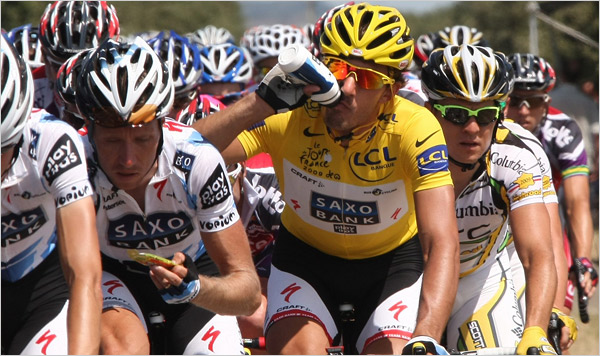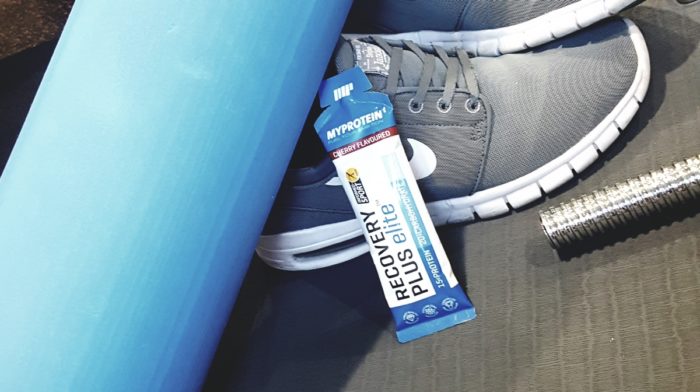Cyclists require a lot of energy to endure their intense training regimes, and this cannot be done without a well-thought out nutrition plan. We have teamed up with the sports nutritionists over at Myprotein to help you structure your diet around training so that you get the best from the hours of tough work on the bike.
Importance of Cycling Nutrition
Your body needs to replenish after working the muscles, stretching them and engaging a few that you don’t normally use as much. This is where nutrition comes in. It is a very effective strategy to feed your body with energy to keep you going, and protein to aid in recovery of those muscles that you’ve pushed to the limits in exercising.
It has been calculated that a cyclist will burn no less than 500 calories on an hour-long ride. Intense exercise burns hundreds of calories, at which point your body will be begging for some nutritional input to make sure it keeps energised, so having this type of calorie intake balances out your exercise to calories lost ratio.
Keeping on top of calorie numbers can be difficult though, and it is something that we all struggle with. Devising a simple nutrition plan that you can stick to and change up a bit (to avoid tedium and eating the same thing all the time) is a handy solution. Below is our cycling nutrition plan that we have written with the help of Myprotein Endurance experts.

Nutritional Advice for Cyclists
Whilst diets may vary, it’s important to meet the needs of both the body’s physical and metabolic demand for calories. Calories are split into 3 main macronutrients: protein, fat and carbohydrates. All three play an essential part within cyclists’ nutrition.
- Carbohydrates
Carbohydrates are the fastest digesting source of glucose and energy. There are two different types of carbohydrates: simple and complex carbohydrates. Simple carbohydrates are fast absorbing and digesting sugars from food sources such as fruit that can provide a quick release of glucose in the blood steam, whilst complex carbohydrates from foods such as bread, pasta and oats provide a slower, more sustained release of energy to keep you fuelled for longer. Both simple and complex carbohydrates are essential for a cyclist’s nutrition depending on training types and timings.
Simple carbohydrates and sugars are perfect for energy pre training and during events. Not only this, but after long bouts of training and races, sugars also play a large part in muscle recovery and blood insulin levels to replenish muscle glycogen and energy stores.
- Protein
Protein is an important macronutrient that should be prioritised by any cyclist. Protein is the building block of muscle that that aids muscle recovery, maintains muscle mass, and prevents muscle wastage. As a rule of thumb for general diet and nutrition, you should consume a good source of protein with every meal aiming for around 20g per meal through sources such as chicken, eggs, fish, beans and legumes.
For training in particular, protein is essential for recovery and plays an important role in allowing you to perform with maximum effort and strength. When we train and compete for prolonged periods of time, muscle fibres can become torn and damaged which in cases across overtraining combined with poor nutrition can often result in injury or muscle fatigue, which is why it is important to have a sufficient amount of protein within half an hour of finishing your session or race.
In order to ensure maximal muscle recovery you should consume a fast acting source of protein following long sessions. Whey protein is a protein from milk which unlike other protein is fast absorbing in the body and easily broken down.
- Fats
Fats are also an important source of fuel for endurance athletes following carbohydrates providing 9kcals per gram. However, it’s important to make sure you incorporate healthy servings of the right fats which include poly and mono unsaturated fats found from food sources such as nuts and seeds.
Diet Plans
Your diet is an essential part in progressing in training – it completes all of the hard work that you put in day in-day out. The correct foods will fuel your body, recover and strengthen your muscles and provide you with enough energy to keep you going. Below is a diet plan for each main meal in a day, you can follow it as closely or loosely as you like, but we recommend that you have a deep think about your diet and what foods to have in order to get the best out of performance on the bike:
Breakfasts
- Porridge
Porridge is one of our favourite breakfast meals here at PBK. To mix it up and make it a little more exciting, you can sprinkle it with some flavoured protein powder, or add some chopped bananas and honey, or sultanas and honey – anything that makes it less bland.
- Toast
You can put anything on your toast – peanut butter, jam, chopped banana…you name it!
- Cereal
A healthy muesli or granola is a substantial breakfast. Myprotein have their own protein granola!
- Eggs
Eggs are a high source of protein. You can make so many different meals with eggs, like an omelette with spinach and tomatoes, poached eggs on toast with chopped avocado, scrambled egg, and so on.
- Fruit
We reccomend that you have some pieces of fruit after your main breakfast or incorporate it into your main meal such as chopped bananas in your porridge.
Lunches
Long, endurance cyclists need a good source of carbohydrates in their lunch meals. You can get this from foods such as sweet potato, pasta, rice, bread, quinoa, beans and legumes.
A protein source is also important when recovering and strengthening your muscles, so a lunch that includes fish or chicken is perfect. 100g of fish, chicken, tuna etc. will deliver roughly 20-25g of protein.
Dinners
A post-session dinner does not require too many carbohydrates. We recommend having a carbohydrate supplement after your session such as the recovery gel, and then for dinner have a normal portion that incorporates protein such as chicken and pasta, or a chorizo risotto, etc.

Myprotein Recovery Plus Protein Gel Review
Marcus, an endurance cyclist competing at regional level, reviews the Myprotein Recovery Plus Protein Gel from the brand new Myprotein Endurance range. Read his thoughts here!
Supplements
Supplements are a simple, quick and efficient way to incorporate protein and carbohydrates into your nutrition plan before, during and after exercise. Myprotein have a number of supplements that are the perfect source of well-needed nutrients for cycling. Their brand new Endurance Range includes energy, recovery and protein gels.
It is worth noting that if exercising on an empty stomach, a quick supply of glycogen and sugar can be found in Myprotein’s gels, tri-carb or electrofuel. If you are looking to purposely train on an empty stomach to manipulate glycogen stores consume BCAAs pre-workout.
Endurance athletes such as cyclists should have every day care and include omega 3, joint plus/ glucosamine, electrolytes and vitamins in their nutrition plan. Below is a short guide on what nutritionists from Myprotein suggest you have to fuel and recover from your ride, before, during and after both long sessions and short, intense sessions:
Long Sessions
- Before
Make sure you consume a slow releasing source of complex carbohydrates 2 to 3 hours before any long session. This includes solid foods like porridge and pasta. Just before the session, we recommend that you consume fruit sources supplements like tri carb . There’s also the option of energy gels with added caffeine such as the brand new Energy Elite + Caffine in the endurance range for a quick sugar release.
- During
During your session, you can sip on intra workout formula containing amino acids and BCAAs which help keep the muscle from breaking down whilst aiding performance. We recommend the ElectroFuel which is in the Endurance Range, and Exceed.
Gels are also a good source of energy and easy to take during a session on the bike and a handy size to slip in your jersey pocket – they contain sugar and added BCAAs unlike any competition. The Deluxe Energy, again from the new Endurance Range, is our recommended go-to gel for the bike.
Bars can also benefit during a session as quick snack source when out on the bike. They are solid food and can fill a gap if you get a bit hungry.
- After
Recovery is essential to make sure that the muscles that you have worked during your session are well replenished, restored and strengthened so that the next time you go out for a ride, you see notable improvements in your performance. A quick snack to have after your ride is a protein flapjack. This is a tasty bar that will help replenish your muscles with the protein store in the ingredients.
For convenience, the Myprotein gels are, again, perfect. The brand new recovery gels in the Endurance Range are the gels to try. After your session, you need to replenish the glycogen stores in your body with a source of sugar, and these new gels contain just this, as well as electrolytes and vitamins.
Short & Intense Sessions
- Before
For a source of sugar, follow the same strategy as for a long session, however if you are looking to avoid consuming sugar, taking something like the pulse gel is a great no sugar alternative for caffeine which we suggest you only take if you need an energy lift!
- During
During short intense sessions, you want to ensure that your muscles are kept strong, so to prevent muscle breakdown we suggest that you try an infused supplement which contains BCAAs, vitamins and minerals.
- After
A protein flapjack or a scoop of whey protein or a protein gel will be a sufficient recovery source – you don’t need too much sugar or carbohydrate after a short intense session, you want to focus more on getting your protein fix.
Casual and/or Leisurely Training Sessions
For casual and leisurely sessions, your cycling nutrition plan would be a combination of the above, depending on how long you are training for!
